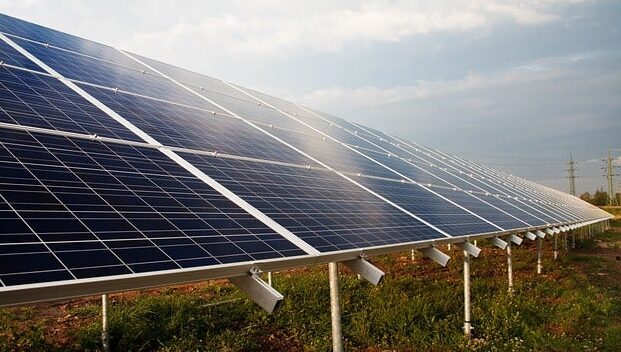From The Editor’s Desk: Does Assembly work for residents or investors?
Published 12:02 am Saturday, January 11, 2025
|
Getting your Trinity Audio player ready...
|
It all made sense after I sat through Monday’s meeting. Before that hearing, I was trying to understand why members of the Virginia General Assembly were so determined to push a bill through this year, to try and strip local control over solar farms. But boy, just a couple minutes in and it was all cleared up.
First, some context. Monday’s hearing, as we reported earlier this week and with more detail in today’s paper, was for the Virginia Commission on Electric Utility Regulation. They had to decide if a proposed bill should go to the General Assembly to be discussed or die on the commission floor. This bill would create a brand new Virginia Energy Facility Review Board, which would have the power, as the name implies, to review decisions made by cities and counties, when it comes to solar. Basically, if a developer gets rejected by a county and then files an appeal in circuit court, this bill would require the judge to consider the review board’s position as “right”. If the board sides with the developer, then the court would be able to overturn the county’s decision and grant approval to the solar farm. There are multiple other powers that would be granted to this board, if it is created, all with the intent of changing a statistic.
“If we continue to have the completely unfettered free market, whatever you want to call it system, where every locality can do whatever they want right now, we’re gonna continue to have 80% of all solar projects being rejected,” Scott Surovell said on Monday. Surovell is both the chairman of the Commission on Electric Utility Regulation and the Majority Leader for the Virginia State Senate. His goal is to lower the number of solar projects being rejected in the Commonwealth.
Trending
It’s apparently a goal shared by members of his commission, as they argued, fought and yet the majority ultimately voted to push forward that bill to create the review board.
The Assembly members give a reason why
But my question still remained. Why? Why is it so important to guarantee more solar projects get approved, even if the residents of the places referenced do not want them? Why is this concept so important that state lawmakers would try (for the second straight year) to strip local governments of the authority to make this decision for themselves? Two reasons were given, but I think you’ll be able to see why I feel the first one is just window dressing.
Back in 2020, the General Assembly passed the Clean Economy Act. This bill, now a law, requires just under two-thirds of the state’s electricity to come from solar or wind energy by the end of 2035. That date is completely arbitrary. It’s not like this is a critical problem, where we have to make the switch or a bomb goes off. It was just something the Assembly at that time determined we as a state needed to do. But the problem is that while it may have sounded good on paper to some people, quite a few counties and cities are dramatically behind schedule, if Virginia is to make that 2035 date a reality. And by behind schedule, I mean that these counties, many of whom are in this region, have created some tough solar ordinances, to carefully decide which solar projects get approved and which ones crash and burn. Or, in the case of Prince Edward County, which ones get delayed, as they are so massive the planning commission needs extra time to determine the impact, beyond just dollars.
Tired of counties taking so long, some Democratic lawmakers have started pushing bills to take the decision away from local hands, in order to speed up the process.
But you see, I think that’s just something to hide behind. It sounds good and to some people, it’s a reasonable argument. “We had to take control. After all, if we didn’t, we’d never meet the law’s deadline.” And yet, laws are constantly changed. If this was the only issue, one simple vote to move the deadline back a few years or even eliminate it would solve the problem. Also, just approving the solar farm for a permit doesn’t mean anything. Heck, I can count on two hands the number of projects approved in Buckingham and Prince Edward that are still waiting to break ground, five or six years later. Developers have had to come back before county boards and ask for extensions on the original permits, because they’re not able to move forward yet, through no fault of the county. So how does taking control away from the county fix that? It doesn’t. So what’s the real issue here? Well, Surovell made that clear minutes later.
What might be the real problem
If more of these solar projects don’t start getting approved, “all kinds of people who want to invest in this state are going to stop investing in this state because the system is so incredibly unpredictable,” Surovell said in the hearing.
Trending
Now to me, that sounds like a developer or two got upset over being rejected, picked up the phone and made a couple calls to Assembly politicians who they had previously donated to. Again, I’m just saying what it sounds like. I’ve been in county meetings where the developers couldn’t answer a single question, when it comes to their proposal. They couldn’t say what the plan was, if it caught fire. They couldn’t say what would happen if the company went bankrupt before finishing the project. Some couldn’t answer basic structural or environmental questions and so yes, their projects got delayed, deferred or rejected.
But regardless, it’s clear Virginia politicians are scared about solar farm investors fleeing Virginia for greener pastures. Maybe the developer threatened to stop spending money. Maybe they said they’d put a stop to donations to political campaigns. It’s hard to find those sure-thing donors, able to send over $100,000 at one time.
But in giving these would-be investors priority, in this case you strip away part of what I’d argue is a key to any functional city or county. You would take their ability to make a decision for themselves. Good or bad, it doesn’t matter. Who wants to live in an area where any decision over solar can be overridden by the state? More than that, where does it stop? Once you take over decisions on solar, what’s next? I don’t see that ending well.
Editor’s note: Brian Carlton is the regional editor for the Farmville Herald, Charlotte Gazette and Kenbridge-Victoria Dispatch. He can be reached at brian.carlton@farmvilleherald.com.






